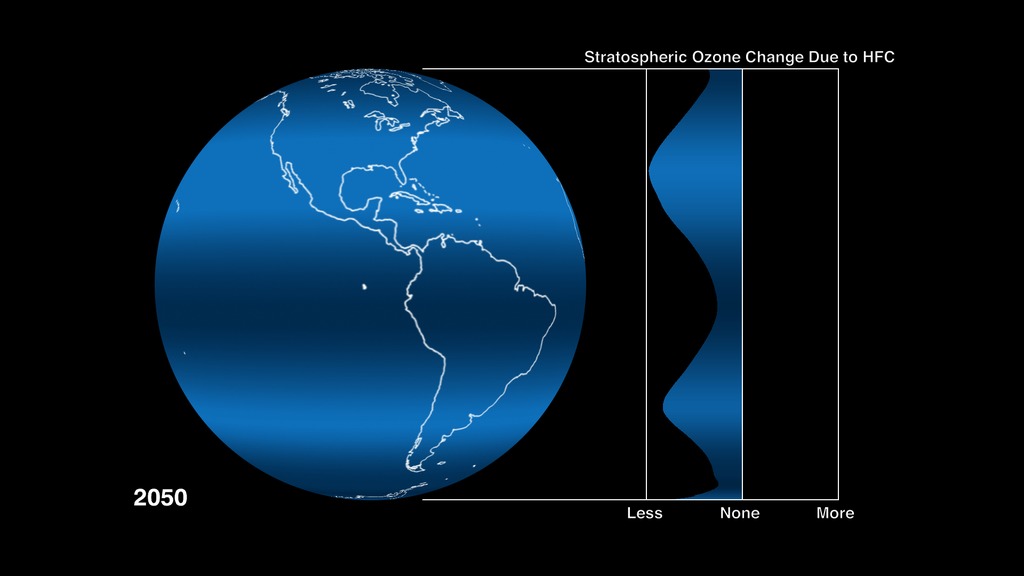Eyes On The Skies

Scientists take a closer look at chemicals once thought to be harmless to Earth's ozone layer.
A class of widely used chemical coolants known as hydrofluorocarbons (HFC) contributes to ozone depletion by a small but measurable amount, countering a decades-old assumption, according to a new NASA study. Research in the 1990s showed that HFCs, which have replaced more powerful ozone-depleting chemical coolants in recent years, destroy only a negligible amount of ozone through direct chemical reactions. But the new study shows that HFCs deplete ozone indirectly through increased warming of the stratosphere, speeding up the chemical reactions that destroy ozone molecules, and they also decrease ozone levels in the tropics by accelerating the upward movement of ozone-poor air. Their impact is such that HFCs will cause a 0.035 percent decrease in ozone by 2050. While HFCs are only weak ozone-depleting substances, they are strong greenhouse gases. If production trends continue, projections show that, by 2050, the amount of global warming by all HFCs could be as large as 20 percent that of carbon dioxide. Watch the video to learn more.
Find out more about HFCs and how they contribute to ozone depletion in this video.

Atmospheric concentrations of HFCs are growing at 7 percent a year and are projected to be over 17 times higher by the year 2050.

Using a NASA computer model, scientists simulated the impacts of HFCs on ozone levels into the future.

This image shows the projected impacts of HFCs on ozone levels at the various latitudes in 2050.
For More Information
See NASA.gov
Credits
Please give credit for this item to:
NASA's Goddard Space Flight Center
-
Writer
- Samson K. Reiny (Wyle Information Systems)
-
Animator
- Horace Mitchell (NASA/GSFC)
-
Producer
- Sophia Roberts (USRA)
-
Interviewee
- Margaret M. Hurwitz (Morgan State University)
-
Scientist
- Margaret M. Hurwitz (Morgan State University)
-
Videographers
- John Caldwell (Advocates in Manpower Management, Inc.)
- Rob Andreoli (Advocates in Manpower Management, Inc.)
Release date
This page was originally published on Thursday, October 22, 2015.
This page was last updated on Wednesday, May 3, 2023 at 1:49 PM EDT.

